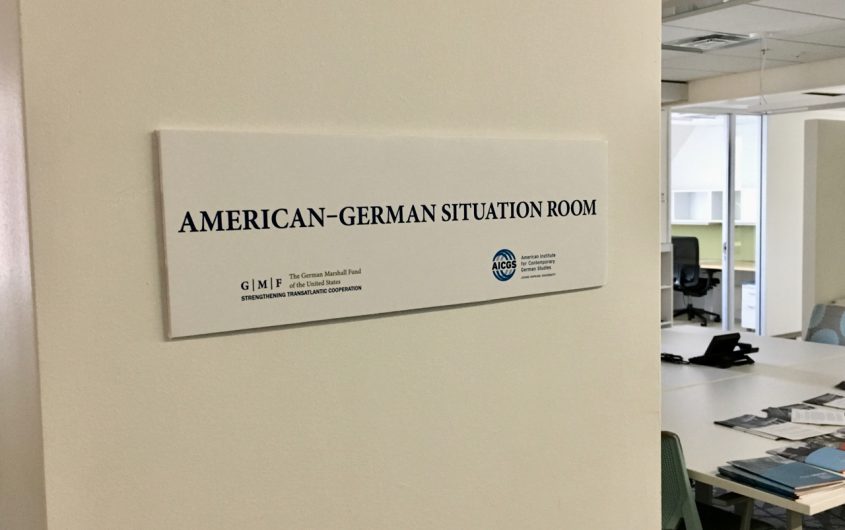AGI News
Aylin Matlé, AGSR Fellow

AICGS

Aylin Matlé
German Council on Foreign Relations
Aylin Matlé is a research fellow with the German Council on Foreign Relations. In that role, she primarily works on German security and defense matters. Previously, she has served as the Deputy Head of the Konrad-Adenauer-Stiftung’s Israel office in Jerusalem.
Aylin Matlé holds a PhD from Martin-Luther-Universität Halle-Wittenberg. Her thesis “Drifting Apart of Transatlantic Security: The American Mark on NATO under Barack Obama” examined the impact of the Obama administration on allied and defense policies of European Alliance members. Dr. Matlé worked as a research associate at the chair of international relations and European politics at the Martin-Luther-Universität from 2014-2016. Prior to that, she completed an MA in War Studies at King’s College London in 2014. She holds a bachelor’s degree in Public Management and Governance from Zeppelin Universität, Friedrichshafen.
She was a Fellow in the American-German Situation Room in 2018. In addition, she participated in the AICGS project “A German-American Dialogue of the Next Generation: Global Responsibility, Joint Engagement” from 2018-2019.
AGI is pleased to welcome Aylin Matlé as an AGI/GMF Fellow with the American-German Situation Room in Washington, DC, in March and April 2018.
Aylin Matlé is a research assistant for the Political Dialogue and Analysis division of the Konrad Adenauer Foundation (KAS) in Berlin. She is currently working toward a PhD at Martin-Luther-Universität Halle-Wittenberg on the role of the U.S. in NATO during the Obama presidency.
Before starting her PhD, Ms. Matlé worked as an academic assistant at the Chair of International Relations and European Politics at Martin-Luther-Universität Halle-Wittenberg, where she taught courses on transatlantic relations and international organizations. Ms. Matlé completed an MA in War Studies at King’s College London in 2014.
During her time in Washington, Aylin Matlé will focus on conducting expert interviews for her PhD project, which focuses on exploring the influence of the Obama administration (2011-26) on (national) NATO policies of selected European allies (Germany, Poland, and Turkey). Four events/spheres of activities will be examined in order to determine whether or not U.S. decisions impacted European allies: the Libya campaign in 2011; the pivot to Asia; crisis management toward Ukraine; and reassurance measures after the Russian annexation of Crimea in 2014.








